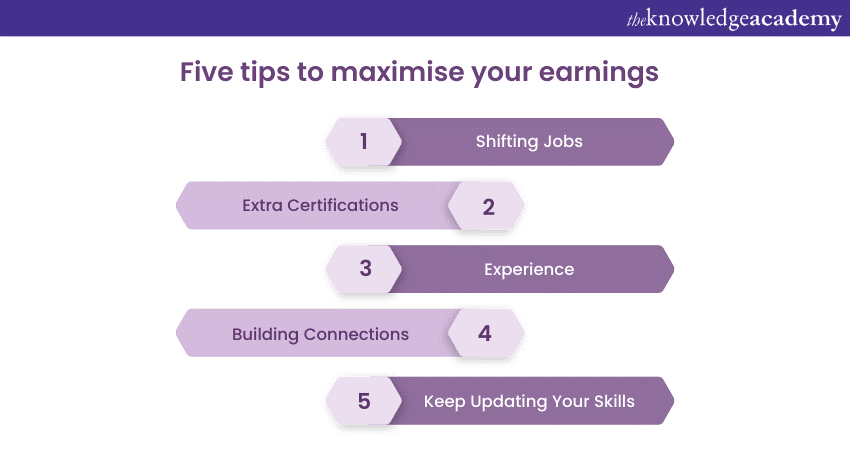We may not have the course you’re looking for. If you enquire or give us a call on +918037244591 and speak to our training experts, we may still be able to help with your training requirements.
Training Outcomes Within Your Budget!
We ensure quality, budget-alignment, and timely delivery by our expert instructors.

The demand for Information Technology (IT) Certifications has increased considerably in recent years. Today, Computing Technology Industry Association (CompTIA) is the leading credible IT certification provider. One of their many well-known certificates that promises high-paying jobs is the CompTIA A+. As the demand for such certified individuals is increasing, the CompTIA A+ Certification Salary is also growing, thus making this profession attractive for such individuals.
According to Certiology, up to 86% of hiring managers in the IT field wish to recruit certified professionals in organisations. CompTIA A+ is among the most preferred certifications, even by companies like Microsoft, Costco, and HP. Read this blog to learn about the CompTIA A+ Certification Salary based on location and job roles, alongside various tips to maximise your salary.
Table of Contents
1) Introduction to CompTIA A+ Certification
2) How much can you earn with CompTIA A+?
a) Average CompTIA A+ salary by location
b) Average CompTIA A+ salary by job roles
3) Tips to maximise your earnings
4) Conclusion
Introduction to CompTIA A+ Certification
The CompTIA A+ Certification provided by the Computing Technology Industry Association (CompTIA) is internationally renowned. It teaches the necessary skills for dealing with computer hardware and systems.
CompTIA A+ offers in-depth knowledge of Operating Systems (OS), hardware, mobile devices, etc., and a basic networking understanding. CompTIA also provides courses focusing on networking and cybersecurity, like the CompTIA Network+ and CompTIA CySA+ certificates.
You can acquire a CompTIA A+ certificate by clearing two exams - 220-1101 and 220-1102. The exam topics of 220-1101 include hardware concepts, and 220-1102 deal with OS, software troubleshooting, security, and operational procedures.

How much can you earn with CompTIA A+?
CompTIA A+ is the best choice for attaining entry-level jobs in the IT sector. It can lead you to multiple valued job positions like Desktop Support Administrator, Data Maintenance Technician, and Cybersecurity Manager.
Although the average CompTIA A+ Certification Salary ranges between £36,259 - £48,345, it can differ with location, job role, type of organisation, and level of expertise, among other factors. Let's take a look at some factors that influence the CompTIA A+ income:
Average CompTIA A+ Salary by Location
In the current scenario, the availability of jobs depends on IT certifications. The CompTIA A+ certificate is one of the most coveted ones that can help you land high-paying jobs. The average salary with CompTIA A+ varies from place to place. The following table shows what is CompTIA A+ Certification salary in three countries – UK, USA, and India.
|
|
United Kingdom (UK) |
United States of America (USA) |
India |
|
Average salary or salary range |
£36,259 - £48,345 |
$26,000 to $75,500 |
₹3,25,000 |
Source: Indeed
The salary is also dependent on your work experience. The more experience you have, the higher the salary you can earn. For example, entry-level jobs like Desktop Support Administrator earn an average of £26,000 annually, and senior IT professionals with CompTIA A+ certifications earn up to £35,000 a year.
Earn your CompTIA A+ certification by signing up for our CompTIA A+ Training course to learn more about it and improve your skillset now!
Average CompTIA A+ Salary by Job Roles
One of the most critical factors determining your income with a CompTIA A+ Certificate is the job you pursue. There are multiple job positions to explore in the IT industry with the CompTIA A+ Certification, but each job's responsibilities create a difference in the salaries. Here are some commonly pursued job positions by CompTIA A+ certified professionals:
|
Profession |
Average Salary |
|
IT Support |
£26,800 |
|
IT Support Specialist |
£50,680 |
|
1st Line Support Engineer |
£23,290 |
|
Security Analyst |
£45,000 |
|
Technical Support Specialist |
£25,900 |
|
2nd Line Support Engineer |
£30,200 |
Source: Indeed
Job positions like IT Support are entry-level positions that require only a few prerequisites or experience. On the other hand, the 2nd Line Support Engineer, which brings in the highest average income, requires further education and experience. Thus, despite having a CompTIA A+ Certification, your choice of job type influences your income.
Improve your knowledge of identifying and resolving cyber threats by signing up for our CompTIA CySA+ Certification Training course now!
Tips to maximise your earnings

As mentioned above, various factors affect your income from jobs acquired with a CompTIA A+ Certificate. As an aspiring IT professional, you must learn various methods to survive in the industry. Here are some tips that can help improve your earnings:
Shifting Jobs
Most times, the same job position gained in various organisations can have different job descriptions and vary in salaries. In an ever-changing industry like IT, it is possible for one job to demand different expectations from employees of different organisations, locations, etc.
For example, the average salary for a 2nd Line Support Engineer is £30,200. At the same time, another organisation from the same city or a completely different location would advertise the job opening for an average income of £40,000.
Extra Certifications
Apart from holding a CompTIA A+ Certification, additional IT certifications are the next best thing to produce for your hiring managers. CompTIA provides multiple IT-related certifications like CompTIA Network+, CompTIA Security+, CompTIA Linux+, etc.
Adding any IT-related certificate can improve your skillset and chances of being selected for higher-paying jobs. Multiple certifications, apart from CompTIA A+ in the same field, help acquire entry-level jobs and career advancement.
Experience
The IT industry relies on practical knowledge as much as theoretical knowledge. Thus, organisations always prefer to hire candidates with ample practical experience and knowledge of the various theoretical concepts learned while studying for certification.
Previous job experiences, alongside CompTIA A+ Certificates, can significantly improve your credibility as a fresher and reduce the time organisations would've planned to invest in you for training. This can lead to a rise in income or a quick promotion.
Building Connections
Just like in any other industry, the concept of networking works in the IT industry as well. Familiarising yourself with the top senior executives and renowned IT professionals, apart from earning CompTIA A+ certified individuals, can significantly improve your chances of employment and career advancement.
Social media and organic meetups are among the best ways to market yourself and build connections within an IT group. Employment-oriented social media platforms like LinkedIn are a perfect example of a virtual space that can be used for networking with your desired professionals. This helps you gain better-paying jobs at a faster rate.
Keep Updating Your Skills
Since technology evolves almost daily, more courses will be introduced in the IT sector. As technology advances, you must earn more certificates and update your field knowledge. For instance, if the module of the CompTIA A+ certification is upgraded at any point, you must keep track of the changes.
Conclusion
If you are looking for entry-level jobs in the IT sector, earning CompTIA certificates is a great starting point. CompTIA A+ is one of the most commonly pursued certifications, directing you to high-paying jobs. We hope this blog has helped you learn about the CompTIA A+ Certification Salary, the factors that influence it, and tips to earn more.
Join our CompTIA Course to learn designing, installing, and maintaining networks within an organisation.
Frequently Asked Questions
Upcoming IT Infrastructure & Networking Resources Batches & Dates
Date
 CompTIA A+ Course
CompTIA A+ Course
Mon 3rd Feb 2025
Mon 7th Apr 2025
Mon 2nd Jun 2025
Mon 4th Aug 2025
Mon 6th Oct 2025
Mon 1st Dec 2025







 Top Rated Course
Top Rated Course


 If you wish to make any changes to your course, please
If you wish to make any changes to your course, please


